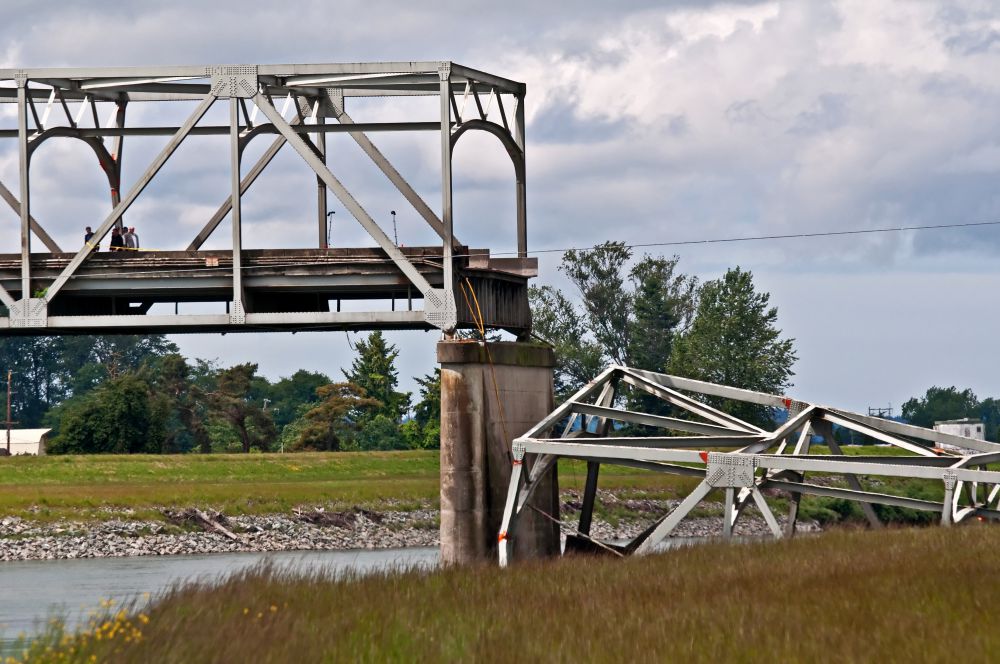Connecting state and local government leaders
Experts debate raising money from repatriation of offshore profits, tout importance of municipal bonds.
WASHINGTON — The time is right for a major legislative deal to deliver up to a trillion dollars in federal funding for American infrastructure over the next decade, U.S. Rep. John Delaney told a gathering in the nation’s capital on Tuesday. And while Delaney, a Democrat from Maryland, emphasized the federal government’s role, others at the meeting focused on state, local and private funding of infrastructure needs.
The half-day conference was sponsored by The Intersector Project, an organization founded by New York businessman and former Carter administration official Frank A, Weil. Its premise is that major projects necessitate cooperation by the public, private and nonprofit sectors, and its purpose is to encourage this as the nation approaches its societal and economic goals.
Delaney has devoted much energy to promoting a major infrastructure thrust since he was elected to Congress in 2012. He is the only member of the U.S. House who has served as chairman of a publicly traded company, CapitalSource, which he founded. A major infrastructure program is the key to creating middle-class jobs in the coming years, he believes.
A key issue, of course, is how to finance a large-scale infrastructure program of the kind that President-elect Trump has embraced. Trump’s website describes his ambition:
- Implement a bold, visionary plan for a cost-effective system of roads, bridges, tunnels, airports, railroads, ports and waterways, and pipelines in the proud tradition of President Dwight D. Eisenhower, who championed the interstate highway system.
Trump is less specific about means of financing the program. His website notes that jobs and investment would create more income and thus more tax revenues, and it says the government should:
- Leverage new revenues and work with financing authorities, public-private partnerships, and other prudent funding opportunities.
- Harness market forces to help attract new private infrastructure investments through a deficit-neutral system of infrastructure tax credits.
- Link increases in spending to reforms that streamline permitting and approvals, improve the project delivery system, and cut wasteful spending on boondoggles.
Delaney, has attracted bipartisan support for two bills addressing the nation’s infrastructure needs: the Partnership to Build America Act and the Infrastructure 2.0 Act. As the congressman noted in his talk, the American Society of Civil Engineers has estimated the country needs to invest between $3.3 trillion over the next decade, and has said current financing sources will fall $1.4 trillion short of the demand.
ASCE Executive Brian Pallasch told the gathering that failure to invest adequately would result in $7 trillion in lost business sales from 2016 to 2025, cause $4 trillion in lost economic growth and cost the economy some 2.5 million jobs. These and other economic data are found in the organization’s most recent “Failure to Act” report.
Although state and local officials and other experts are increasingly looking to private sector investment, value capture and other ways to finance infrastructure projects, the federal government still has an essential financing role. And it’s not clear just how the feds will pay for their considerable share.

Tax Issues
Delaney would rely on incentives for American companies to repatriate earnings they are now keeping abroad—some $2.5 trillion, he said. In exchange for investing some of these currently untaxed profits in an infrastructure bank, they would get a much-reduced tax rate on repatriated funds. With capital of $50 billion, such a bank could leverage $750 billion to $1 trillion in investment, Delaney said.
I asked if local financing techniques seemed important to him, and Delaney responded that “ideas for investments need to be generated locally, and to the extent they could attract local ‘skin in the game,’ that is great.” But he was clearly focused on federal financing and said that his tax plan for repatriation was “more important than broad-based tax reform” because of the job creation and economic growth the infrastructure boom could engender. (Indeed, repatriation was said to be on the agenda for a meeting Trump was conducting with leaders of technology companies, which have huge stashes of cash abroad.)
Delaney voiced the fear that broad-based tax reform would concentrate on reducing tax rates, at the expense of setting aside funds for infrastructure investment.
But later, after Delaney had left, a “respectfully dissenting” view was offered by David Parkhurst, general counsel of the National Governors Association. “I think that tax reform is the engine for infrastructure,” he said, adding that it could address needed increases in the gas tax, tax credits and incentives, and the important goal of protecting the tax deductibility of interest from municipal bonds. “I’m not sure I see how infrastructure moves separate from tax reform,” Parkhurst said.
An Intersector Project fact sheet noted that tax exempt municipal bonds are often the lowest-cost means of financing infrastructure, and now account for 75 percent of the market for private investment—with P3s accounting for another 5 to 10 percent, and tax credits also contributing a small share.
Public Safety and Communications
A sobering plea for investment in infrastructure security was made by Caitlin Durkovich, assistant secretary for infrastructure protection in the Department of Homeland Security. Enemies can use the “cyber vector” to implant destructive software in systems controlling electrical grids and water supply, she said. And she noted that poorly secured public spaces in airports are also vulnerable. “We need to do it for national security purposes,” Durkovich said.
Nicholas Donohue, Virginia’s deputy secretary of transportation, Marcia Hale, president of Building America’s Future, and Erik Hansen, an executive of the U.S. Travel Association, touted the benefits of multi-sector sponsorship of infrastructure projects, offering examples of P3s, river reclamation projects and more to make the point.
But all agreed that more public education is needed about the need for better infrastructure in this country. The civil engineers society has calculated that the average American family will lose some $3,400 a year, or $9 a day, as incomes and purchasing power are cut by stalled traffic, lower productivity, higher costs of goods among other factors.
The message hasn’t yet resonated urgently in Washington. But effective communication by governors and mayors is carrying the day at the state and local levels.
Ending on an optimistic note, the Intersector Project fact sheet noted that 71 percent of ballot initiatives for infrastructure had succeeded between 2000 and 2016. And, it said, “in 2016, communities in 25 states considered ballot measures relating to infrastructure totaling $250 billion, the highest amount ever.” Many passed with large margins, as in California, where over 70 percent of Bay Area voters supported a $3.5 billion bond issue to revitalize the aging BART system.
Timothy B. Clark is Editor at Large at Government Executive’s Route Fifty.

NEXT STORY: Amazon releases AI web services




